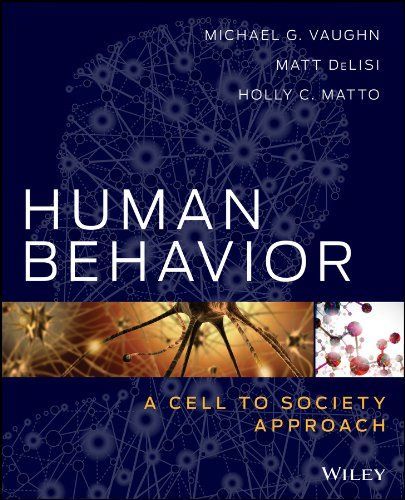
Human Behavior A Cell to Society Approach
A unique approach to human behavior that integrates and interprets the latest research from cell tosociety Incorporating principles and findings from molecular biology,neuroscience, and psychological and sociocultural sciences, HumanBehavior employs a decidedly integrative biosocial,multiple-levels-of-influence approach. This approach allowsstudents to appreciate the transactional forces shaping life courseopportunities and challenges among diverse populations in theUnited States and around the world. Human Behavior includes case studies, Spotlight topics, andExpert's Corner features that augment the theme of each chapter.This book is rooted in the principles of empirical science and theevidence-based paradigm, with coverage of: Genes and behavior Stress and adaptation Executive functions Temperament Personality and the social work profession Social exchange and cooperation Social networks and psychosocial relations Technology The physical environment Institutions Belief systems and ideology Unique in its orientation, Human Behavior proposes a newintegrative perspective representing a leap forward in theadvancement of human behavior for the helping professions. "This book is like no other HBSE textbook that I have used in myteaching career. Traditional HBSE content is included within thechapters, and the authors do an excellent job of explaining complexperspectives on human development from the genome to the brain totemperament and risks in the environment. The book challengesfaculty and students to look at 21st-century HBSE." —Carmen Ortiz Hendricks, DSW, ACSW, Dorothy and David I.Schachne Dean, Wurzweiler School of Social Work, YeshivaUniversity "This book represents a changing of the guard and a new era ofthinking. Vaughn, DeLisi, and Matto have essentially replaced theso-called classic texts with their comprehensive and integrativereview of the most current and relevant theory and research that isessential in understanding the complexities of human behavior.Educators will be hard pressed to find another text that willengage, challenge, and excite students in the way this bookdoes." —Brian Perron, PhD, Associate Professor, School of SocialWork, University of Michigan